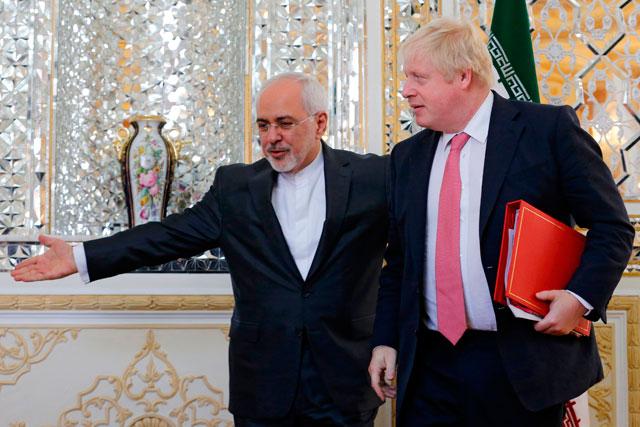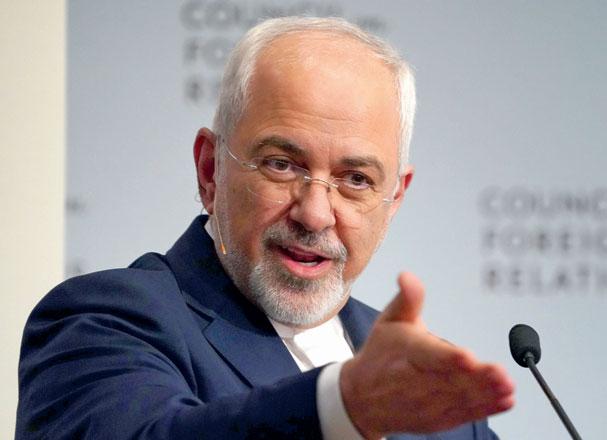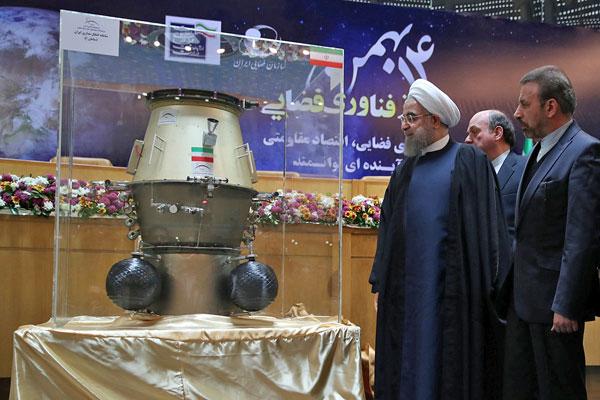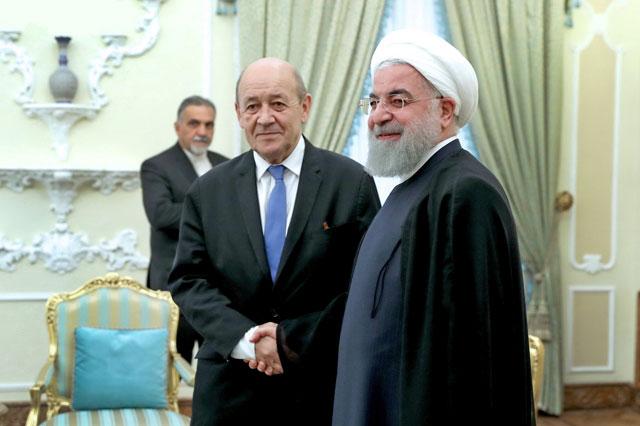You are here
Iran foreign minister defends missile programme, asks European support
By Thomson Reuters Foundation - Dec 11,2017 - Last updated at Dec 11,2017

Iran's Foreign Minister Mohammad Javad Zarif (left) meets with his British counterpart Boris Johnson in Tehran on Saturday (AFP photo)
BEIRUT — Iran's foreign minister on Monday defended its ballistic missile programme and urged European countries not to be influenced by US President Donald Trump's confrontational policy towards Tehran.
In an op-ed article in The New York Times, Zarif also urged European powers to help preserve the landmark 2015 deal under, which Iran curbed its disputed nuclear programme in exchange for the lifting of a number of international sanctions.
In October Trump struck a blow against the deal, approved by his predecessor Barack Obama, by refusing to certify that Iran is complying with the terms of the deal despite findings to the contrary by UN nuclear inspectors. Trump has also called Iran an "economically depleted rogue state"
that exports violence.
"Europe should not pander to Washington's determination to shift focus to yet another unnecessary crisis — whether it be Iran's defensive missile programme or our influence in the Middle East," Zarif wrote.
His remarks seemed to be at least partly aimed at France which has been critical of the Islamic Republic's missile tests and regional policy, including involvement in Syria's war, in recent weeks.
Last month French President Emmanuel Macron said he was "very concerned" by the missile programme and called for talks about it, an appeal rejected by Iranian officials.
Iran's missiles are for defensive purposes only, Zarif wrote in the op-ed.
"We have honed missiles as an effective means of deterrence. And our conscious decision to focus on precision rather than range has afforded us the capability to strike back with pinpoint accuracy," he wrote. "Nuclear weapons do not need to be precise. Conventional warheads, however, do."
While criticising the missile programme, European powers that were party to the nuclear deal — France, Britain and Germany — have reaffirmed their commitment to the nuclear deal and voiced concern at Trump calling it into question.
Zarif also criticised rival Saudi Arabia's regional policy and military campaign in Yemen, but also called for dialogue.
"As Iran and its partners our to put out fires, the arsonists in our region grow more unhinged. They're oblivious to the necessity of inclusive engagement," Zarif wrote.
Related Articles
TEHRAN — Iran's President Hassan Rouhani on Thursday mocked a US decision to impose sanctions on his top diplomat Mohammad Javad Zarif, sayi
DUBAI — Iran's defence minister said on Wednesday it had tested a new missile but this did not breach the Islamic republic's nuclear accord
TEHRAN, Iran — Iran rebuffed French Foreign Minister Jean-Yves Le Drian's calls to curb its missile programme after a day of tense discussio



















